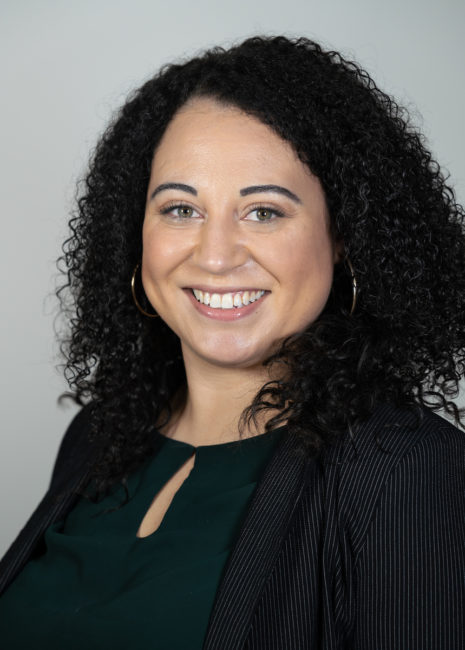
Cassi Zumbiel, the Manufacturing Institute’s director of workforce programs and policy.
The Manufacturing Institute (MI) has created Office Hours to answer questions from employers about second chance hiring and, ultimately, to encourage them to institute the practice.
As the national nonprofit workforce development and education partner of the National Association of Manufacturers, the Manufacturing Institute provides resources to solve problems that manufacturers face. And one of these is to ensure an adequate workforce and fill the more than 500,000 current manufacturing job openings.
Thanks to a partnership with – and a $600,000 grant from – the Charles Koch Foundation, the MI is expanding its efforts to help employers implement and increase second chance hiring. Along with webinars, C-suite leadership events, case studies and a pilot program in San Antonio, Texas, the MI is offering regular Office Hours group and private sessions to spread the word about second chance hiring and get more employers involved.
According to Cassi Zumbiel, director of workforce programs and policy, participants must be manufacturers. But the definition of manufacturers is broad and can include some tech and many other types of companies.
Office Hours offers individual appointments and a group forum
Those interested can choose from a 15-minute individual appointment or a one-hour long open group forum, where people can listen to and learn from each other.
“Our first one was the beginning of last month. And we’ll be doing them once or twice a month moving forward,” says Zumbiel. “In 2022 we’ll have a more regular schedule.”
The next session will be Nov. 18 from 12 p.m. to 2 p.m., EST, and you can register online. The private consultations will take place from 12 p.m. to 1 p.m. and the General Office Hours from 1 p.m. to 2 p.m. There is no charge to participate. If you missed this one and are interested, be sure to check the Manufacturing Institute’s website for upcoming events.
The sessions will be conducted by Zumbiel and representatives from Levelset, an initiative that connects employers with workers who have previous justice involvement.
To get a sense of the substance and value of what this Office Hours initiative and the work of MI have to offer we encourage you to watch this brief 10 minute video of a recent Fair Chance Conversations segment between Zumbiel and Levelset reps.
The first Office Hours session, which took place in October, attracted about 15 employers. This was large enough for a critical mass and small enough for questions to get answered and sharing to take place.
What was discussed
“It was just questions about how to get started, how to partner with community-based organizations and questions about liability,” Zumbiel says. “It’s more general info. Most of the companies joining haven’t started second chance hiring yet and are trying to learn more.”
Advice for companies considering second chance hiring
The place to begin is to check out the way your company operates. “A lot of it starts with an internal conversation. What are your current policies? And how can you improve them,” Zumbiel says.
“Another step is to connect with a community-based organization. Most of this work happens locally. Plugging into a community organization is always a great way to begin this process.”
Other Manufacturing Institute initiatives
In addition to Office Hours, the Manufacturing Institute is in the process of launching a pilot project in San Antonio, Texas. In a partnership with Bexar County’s Department of Economic and Community Development and Office of Criminal Justice Policy, Planning & Programs, the Manufacturing Institute will work with four local companies to create a second chance hiring program.
The companies — Forma Automotive, Vutex, Toyoda Gosei and Toyotetsu Texas – are eager to explore a new way to expand their workforce through second chance hiring. One of these companies, Toyotetsu Texas, has hired more than 80 justice involved employees since 2018 and wants to continue doing so.
With San Antonio underway, the Manufacturing Institute hopes to duplicate its efforts in other parts of the country. “We’re looking at cities that have several manufacturers and other organizations that are very interested in the model we’ve done in San Antonio,” Zumbiel says. But it’s still too early to say what those cities are.
If you’re a manufacturer interested in creating a second chance hiring program, be sure to participate in an upcoming Office Hours session and determine if it’s the right thing for your company to do. You can also check out the resources on the Manufacturing Institute’s website.

